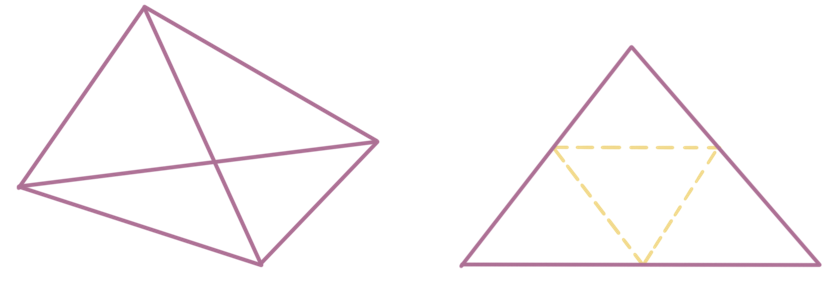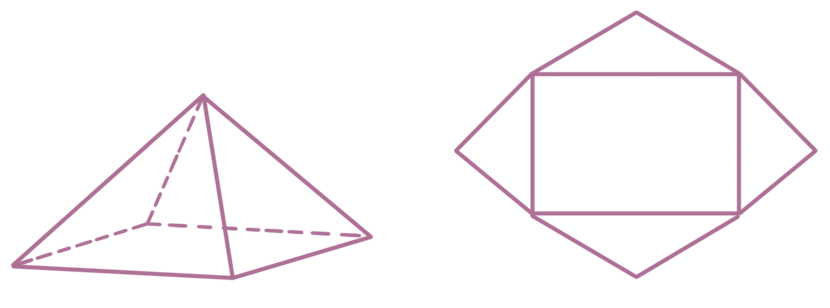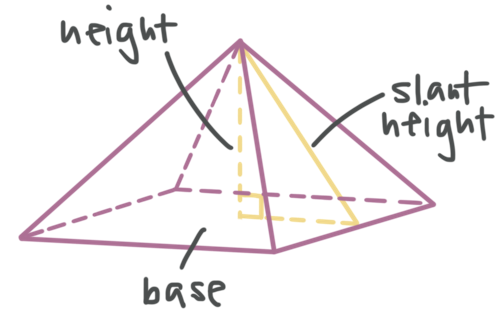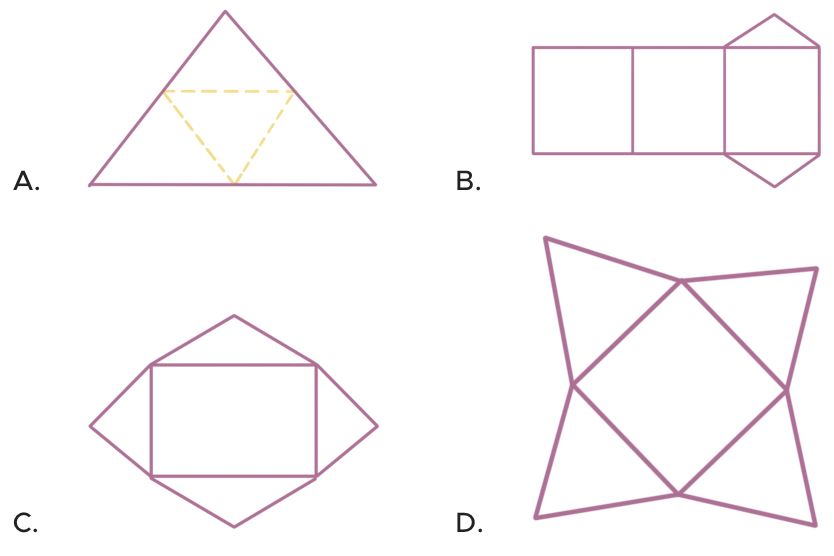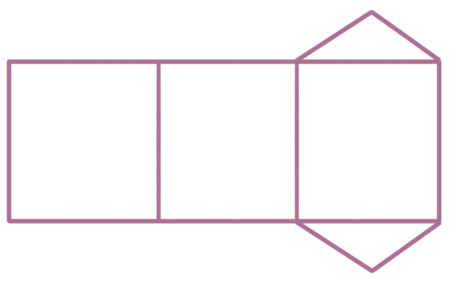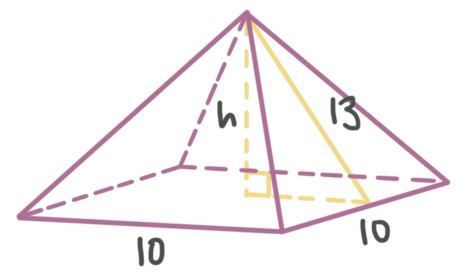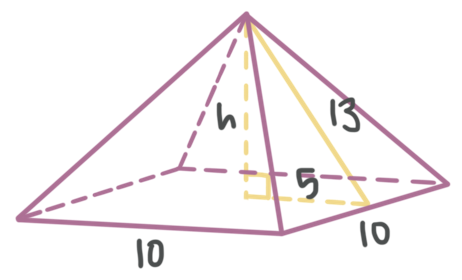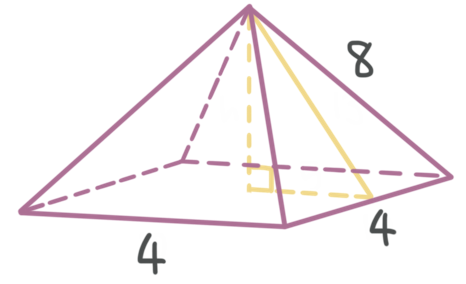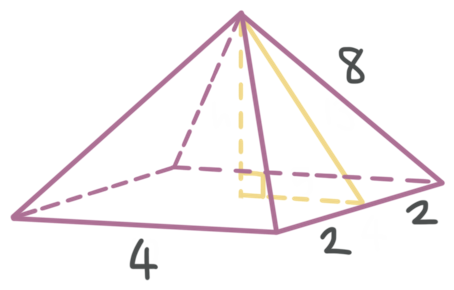Nets, volume, and surface area of pyramids
Pyramids are named for the shape of their base
A pyramid has one base made of any shape and the rest of the faces are triangles. The pyramid is named by the shape of its base.
Hi! I'm krista.
I create online courses to help you rock your math class. Read more.
This is a triangular pyramid and its net. The net of a triangular pyramid has three triangular faces and one triangular base.
This is a rectangular pyramid and its net. The net of a rectangular pyramid has four triangular faces and one rectangular base.
You’ll need to know the names for the different parts of a pyramid. The slant height is also called the lateral height, and is often represented in formulas with the variable ???l???.
Volume
The volume of a pyramid is given by
???V=\frac{1}{3}Bh???
where ???V??? is the volume of the pyramid, ???B??? is the area of the base of the pyramid, and ???h??? is the height of the pyramid.
Surface area
A pyramid has a surface area given by
???S=\frac{1}{2}lp+B???
where ???p??? is the perimeter of the base, ???l??? is the slant height of the pyramid, and ???B??? is the area of the base.
How to find surface area of pyramids
Take the course
Want to learn more about Geometry? I have a step-by-step course for that. :)
Finding the net that doesn’t show a square pyramid
Example
Which net does not belong to a pyramid?
Net B is a triangular prism because it has two triangular bases, and the rest of its sides are rectangular faces.
Let’s look at another example.
A pyramid has one base made of any shape and the rest of the faces are triangles.
Example
What is the volume of the square pyramid?
The volume of a pyramid is
???V=\frac{1}{3}Bh???
The area of the square base is ???B=(10)(10)=100???, and we need to use the Pythagorean Theorem to find the height of the pyramid.
The height ???h??? is the distance from the top of the pyramid to the center of the base, and half of the length of the base if ???5???, and we can use the slant height as the hypotenuse of a right triangle that includes the height.
???{{5}^{2}}+{{h}^{2}}={{13}^{2}}???
???25+{{h}^{2}}=169???
???{{h}^{2}}=144???
???h=12???
Plugging into the volume formula, we get
???V=\frac{1}{3}Bh???
???V=\frac{1}{3}(100)12???
???V=400\ \text{cm}^3???
Let’s do a problem with surface area.
Example
What is the surface area of a square pyramid with an edge length of ???8??? centimeters?
First we need to find the lateral height by using the Pythagorean Theorem.
???{{2}^{2}}+{{l}^{2}}={{8}^{2}}???
???4+{{l}^{2}}=64???
???{{l}^{2}}=60???
???l=\sqrt{60}???
???l=\sqrt{4\cdot 15}???
???l=2\sqrt{15}???
The perimeter of the base is
???p=4+4+4+4=16???
And the area of the base is
???B=4(4)=16???
Plugging everything we’ve just found into the surface area formula, we get
???S=\frac{1}{2}lp+B???
???S=\frac{1}{2}\left(2\sqrt{15}\right)16+16???
???S=16\sqrt{15}+16???



